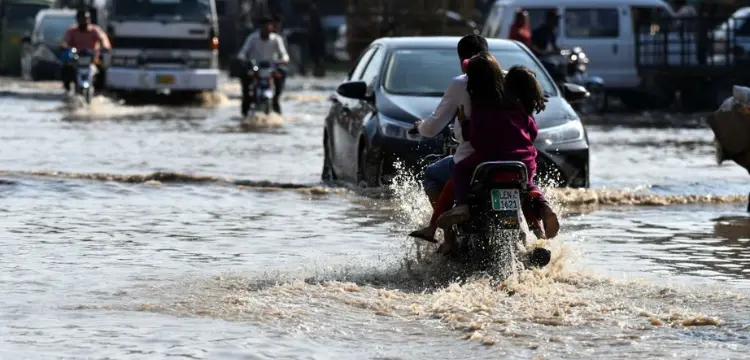The National Disaster Management Authority (NDMA) has issued a forecast for heavy rains across various parts of Pakistan throughout July, warning of potential flooding due to heavy downpours, glacier melt, and urban drainage overflow.
According to NDMA officials, local administrations have been directed to take necessary precautionary measures to mitigate the impact of the anticipated weather conditions. The NDMA’s forecast indicates significant rainfall across multiple regions, with specific warnings for potential flooding and landslides.
In the Malakand and Hazara divisions, heavy rains are expected during the last week of July. These regions are likely to experience significant precipitation, prompting concerns over flooding and water management.
During the first and second weeks of July, Lahore, Sargodha, and Faisalabad are forecasted to receive 15mm to 50mm of rain. Similarly, Gujranwala and Islamabad are expected to experience the same levels of rainfall.
Read More: NDMA Predicts Rainfall In Northern Regions Of Pakistan From Today
The NDMA has highlighted that the fourth week of July will bring heavy rains to Rawalpindi, Islamabad, Lahore, Sargodha, Gujranwala, and Faisalabad. This deluge may lead to urban flooding, particularly in vulnerable areas with inadequate drainage systems.
Moreover, heavy rains in Sahiwal, Multan, and Bahawalpur may cause significant flooding.
In Sindh, cities including Mirpurkhas, Karachi, Hyderabad, Nawabshah, Larkana, and Sukkur are expected to receive between 30 and 75mm of rain throughout July. The NDMA has advised residents and officials in these areas to remain vigilant and be prepared for potential flooding.
The NDMA also issued a warning for Gilgit-Baltistan and Kashmir, where heavy rains during the fourth week of July could result in flooding, landslides, and the bursting of lakes. These regions are particularly susceptible to such hazards due to their topography and the presence of glaciers.
In light of these forecasts, the NDMA has urged local administrations to implement flood preparedness measures, including the clearing of drainage systems, reinforcement of embankments, and readiness of emergency response teams. Residents are advised to stay informed about weather updates and heed warnings from authorities to ensure their safety.











